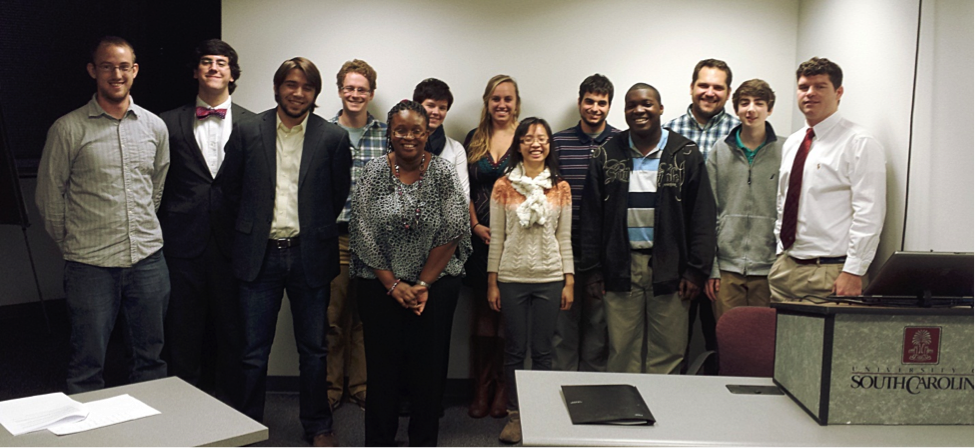
We would like to congratulate
Tamara Nicole Richardo Nurse,
Shannon Hood,
Ming Wong, and
Michael T. Brunson, II for being chosen to join the IEEE-Eta Kappa Nu Honor Society.
The IEEE-Eta Kappa Nu Honor Society at the University of South Carolina honors excellence in engineering by recognizing the leaders of today and tomorrow in the areas of Electrical Engineering, Computer Science, Computer Information Systems, and Computer Engineering. On November 19th, 2013, eight students were inducted into the Delta Phi Chapter of IEEE-Eta Kappa Nu. The ceremony was held in the Electrical Engineering Conference Room in Swearingen Engineering Center.
Congratulations to Eta Kappu Nu’s newest members:
Tamara Nicole Richardo Nurse
Shannon Hood
Amanda Elliot
Ming Wong
Joshua Slice
Michael T. Brunson, II
Jeffrey M. Baker
Matthew Watke
The University of South Carolina established the Delta Phi Chapter of Eta Kappa Nu on May 17, 1962, and the chapter was recently reactivated last year. The chapter now has 16 undergraduate students, 1 graduate student, and 1 faculty member. Eta Kappa Nu is the Honor Society for the Departments of Electrical Engineering and Computer Science and Engineering. In 2010 IEEE and Eta Kappa Nu merged to form IEEE-HKN. The organization currently has about 200 university chapters and thousands of student members. After graduation, members can continue their association with IEEE-HKN.